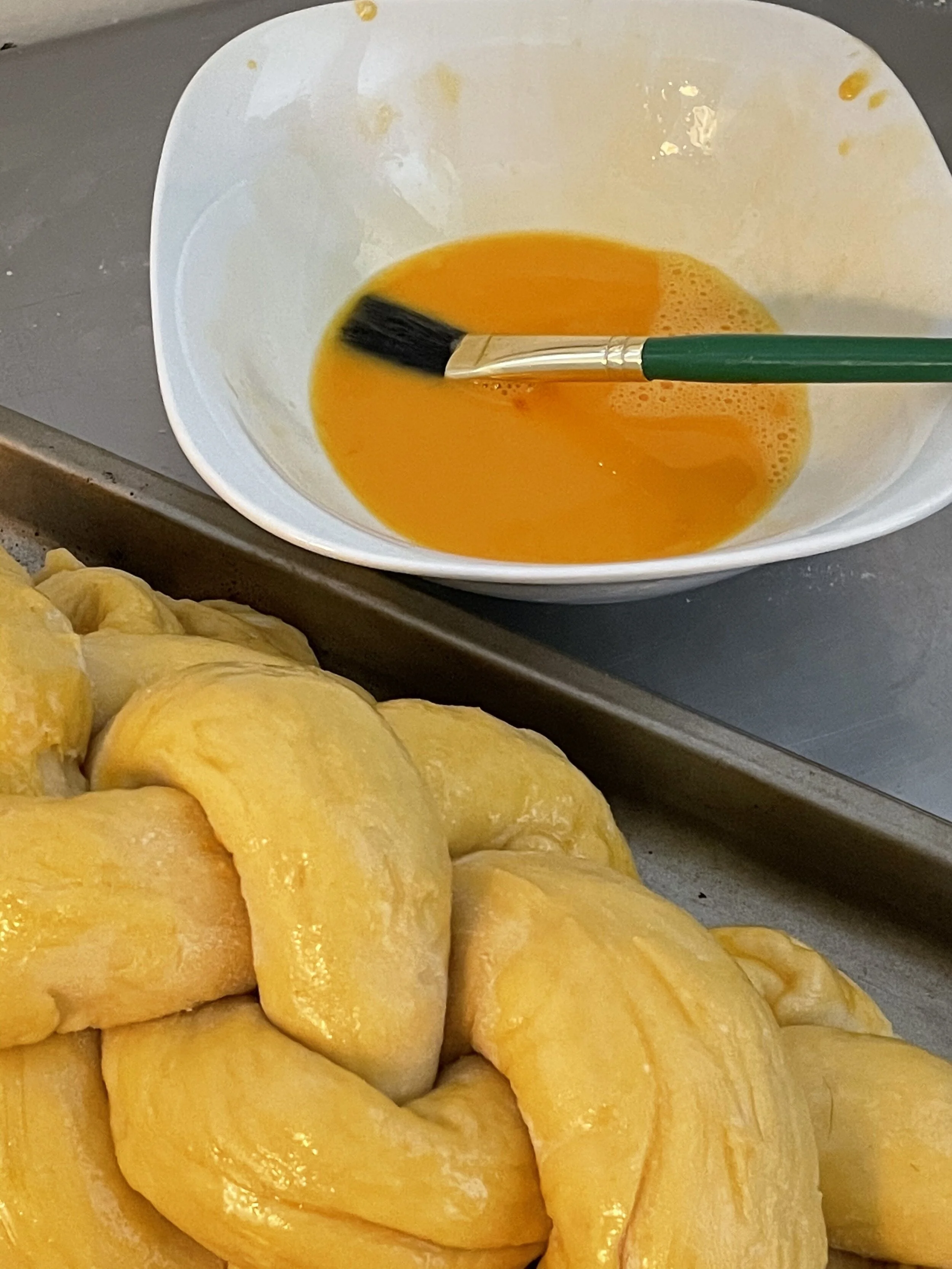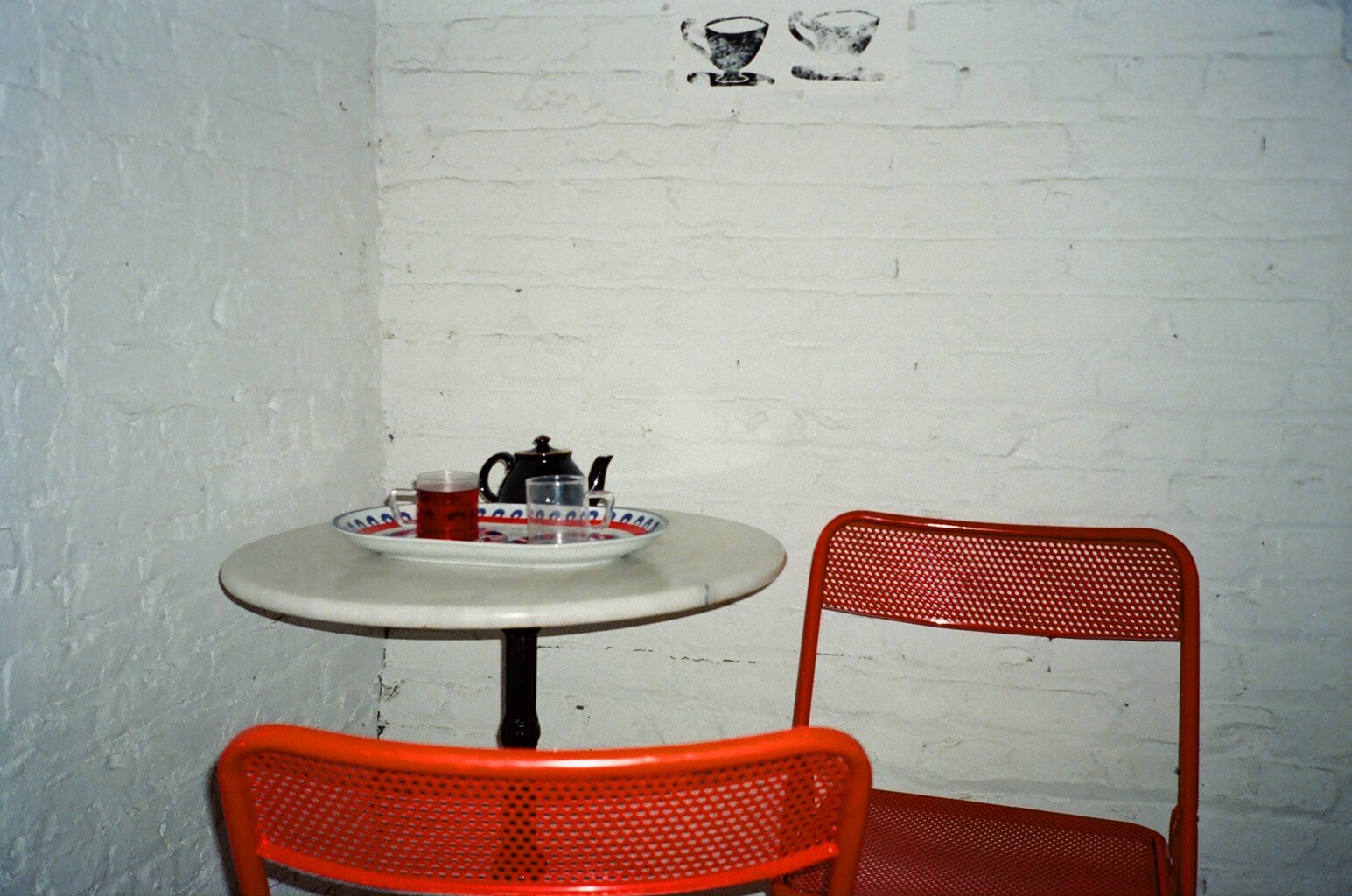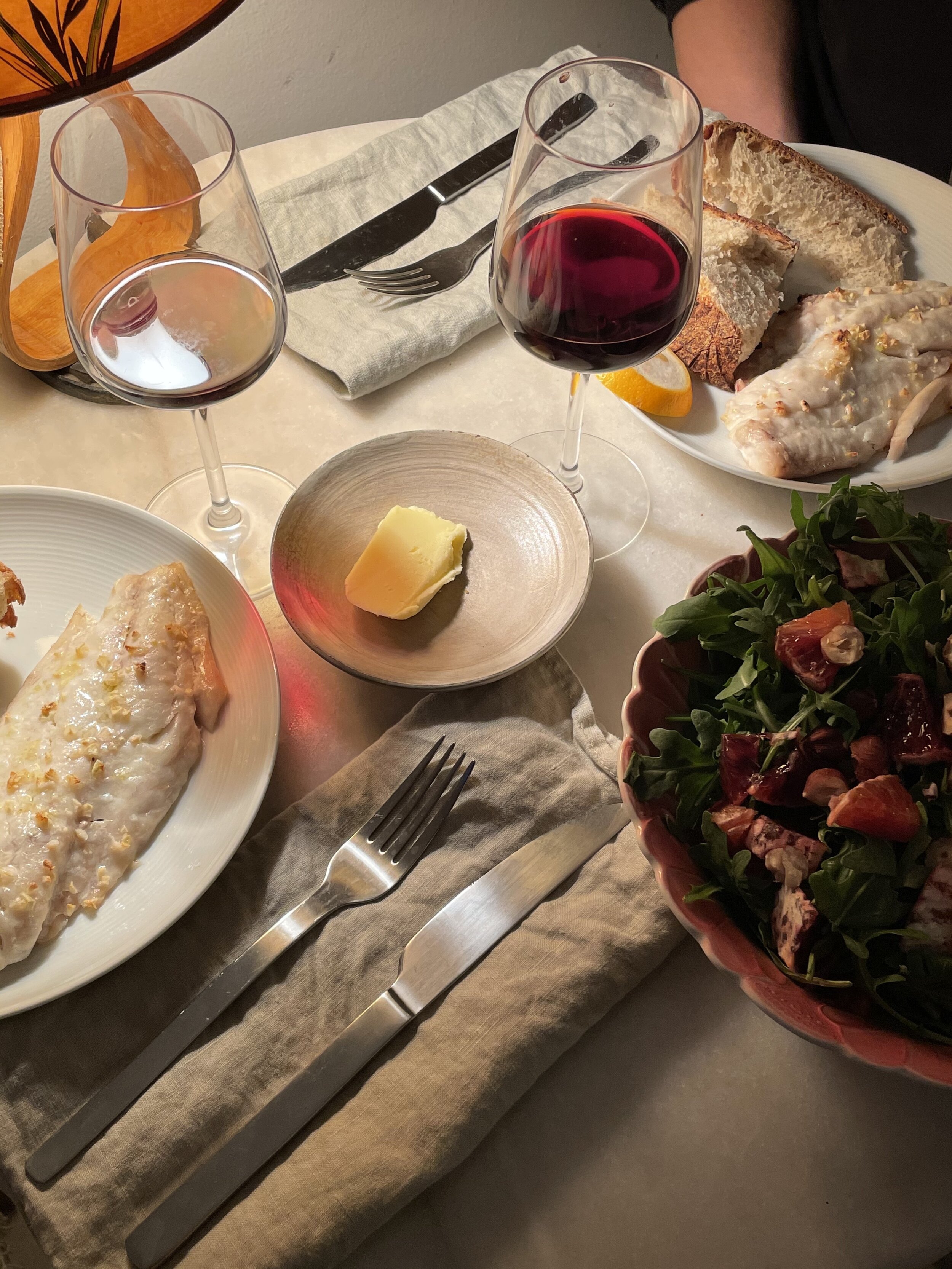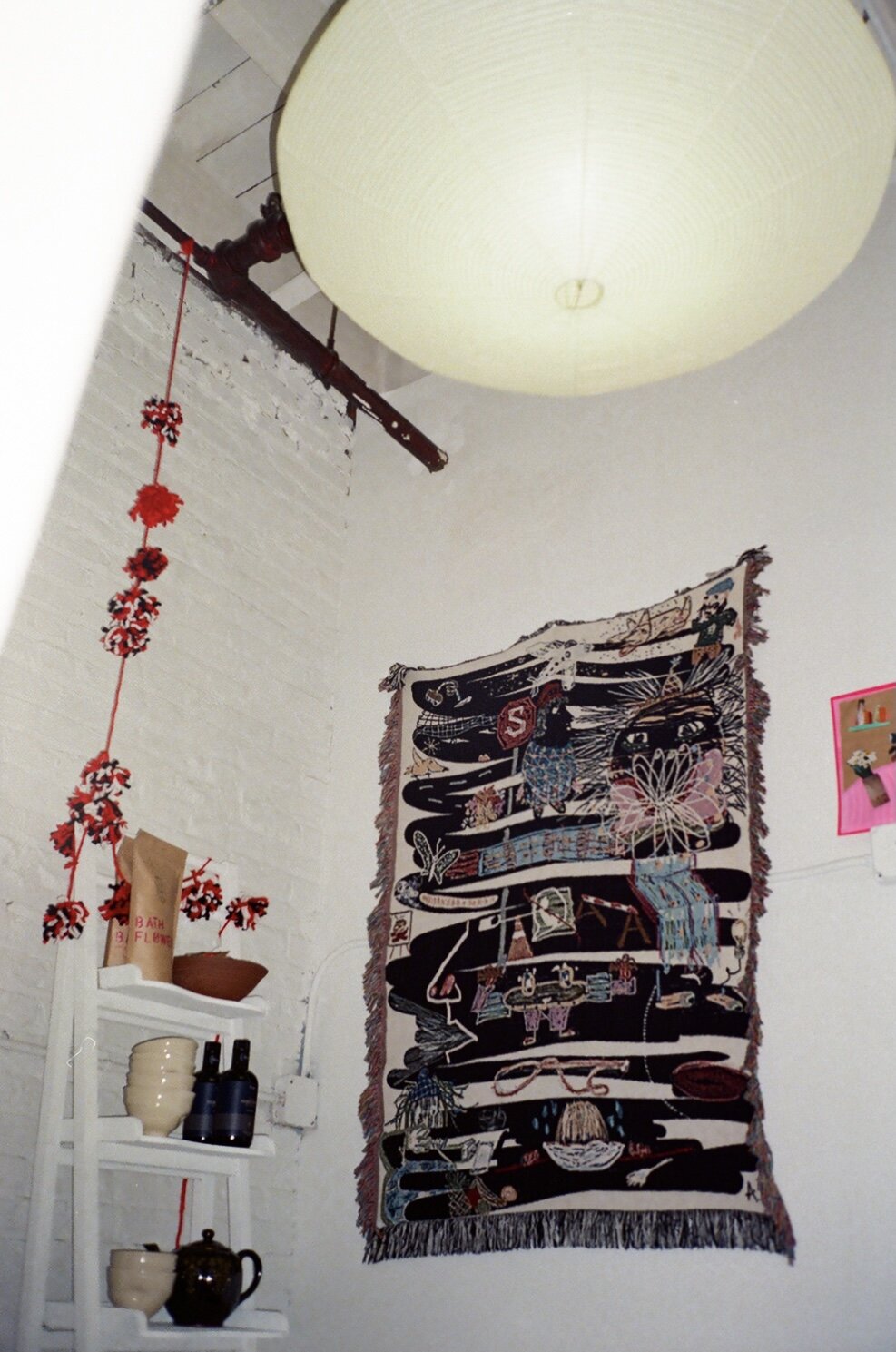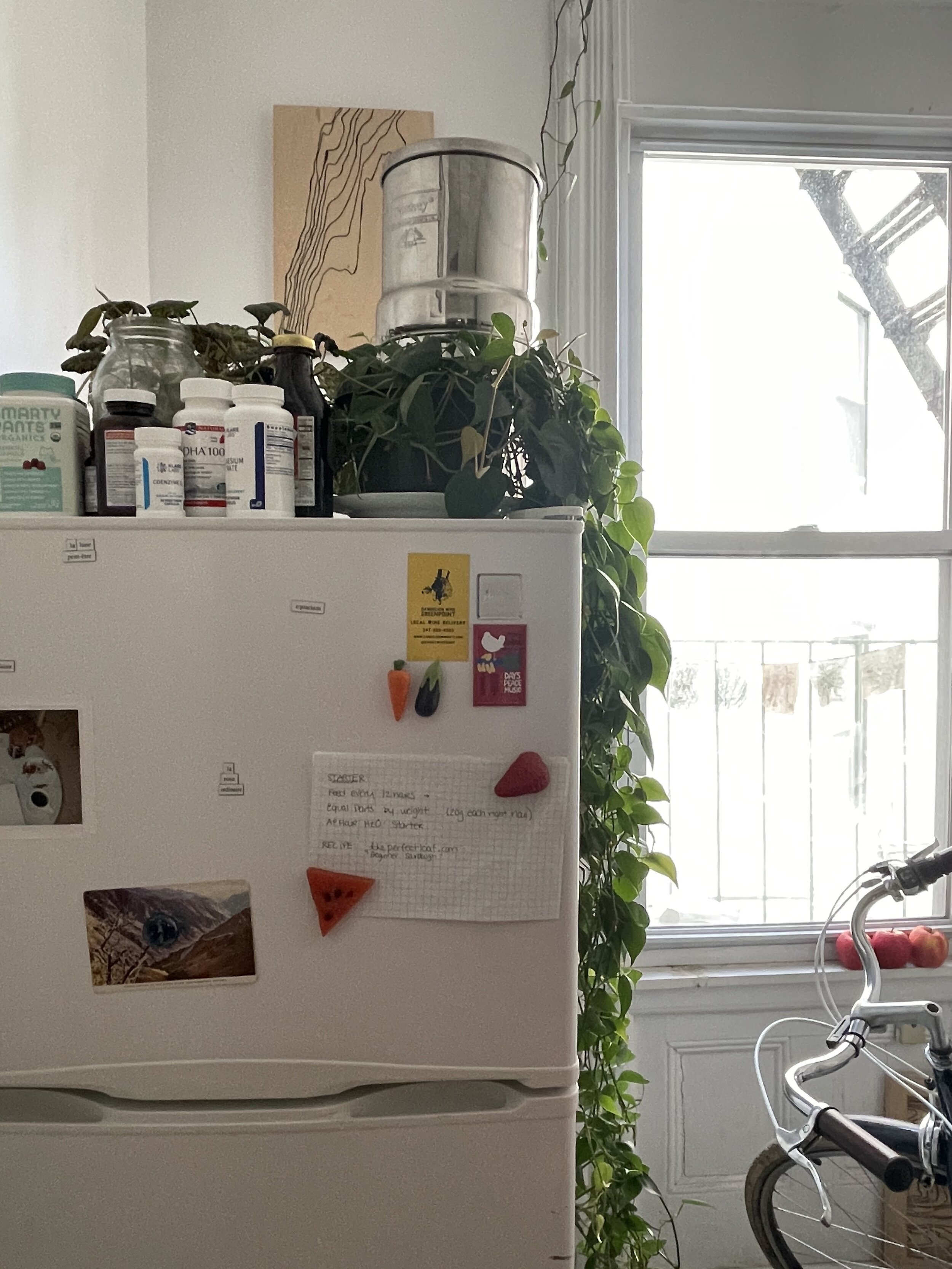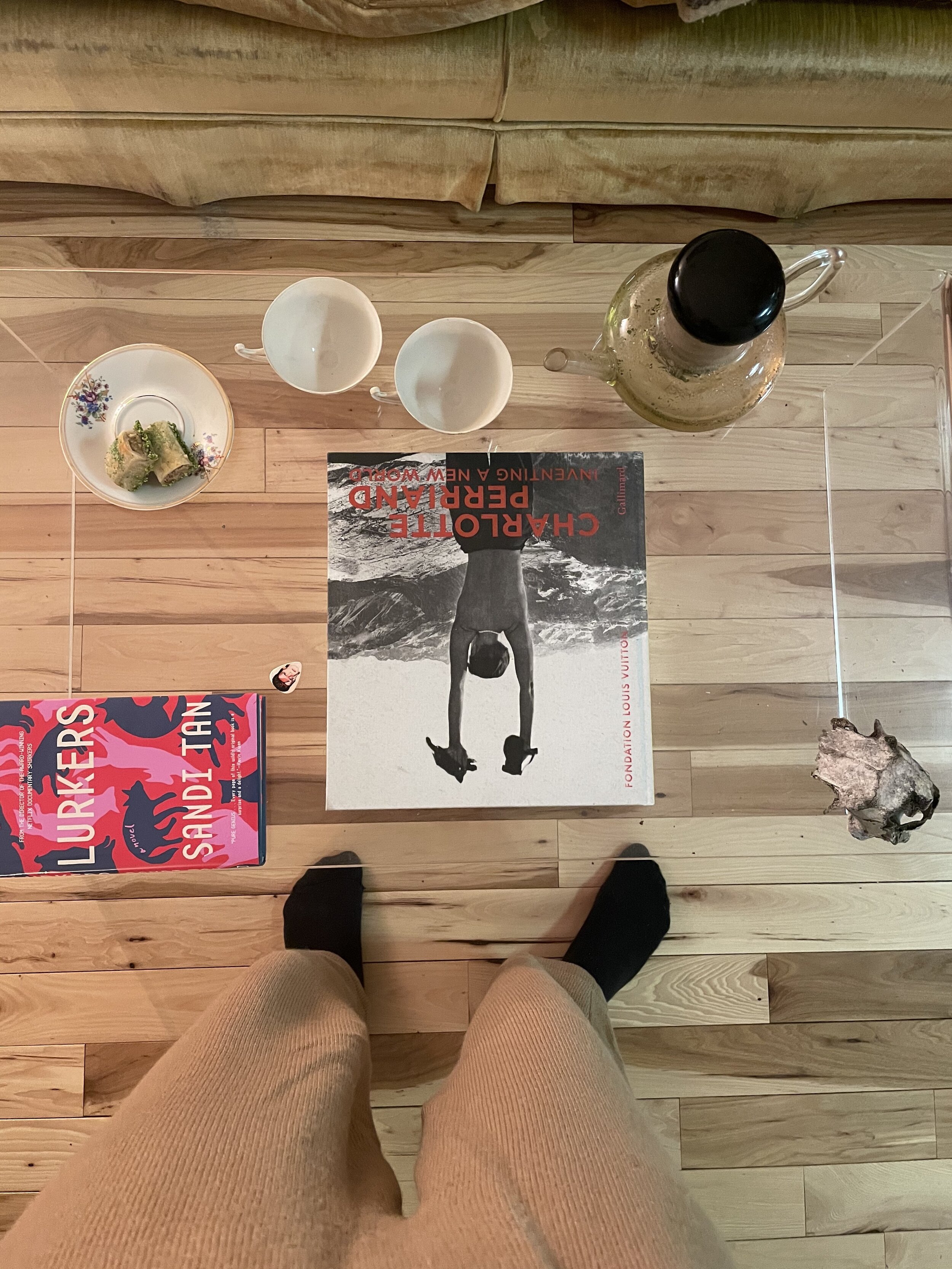Reality Bites with Maria Geyman
Reality Bites is a feature series focused on the relationships people have with food, what kinds of cooking they’re inspired and sustained by, and the ingredients and tools that help them along the way.
When it comes to tea, naturopathic doctor Maria Geyman is fully immersed. Her line of teas and herbs, Masha Tea, is rooted in years of study and experimentation. A lot of love goes into each hand-assembled bag, and it seems like Maria’s enjoying the ride. Her mission with Masha is to create “a fun, thoughtful, and sensual tea culture worldwide.” And it’s already begun: if you’re in Brooklyn, you can visit her new shop now.
What's your morning routine?
Boil water on the stove, make coffee, drink water, take vitamins, make breakfast, put on pants.
Tell us a little bit about your background and how you got into food. How is food, for you, related to community, culture, and ancestry?
I am a board-certified naturopathic doctor in New York City and the founder of Masha Tea. My family left the Soviet Union (Kiev, where I was born!) as refugees because of their Jewish background, and I left traditional medical school to study naturopathic medicine in my early 20s. As a child, my family lived in Brooklyn and then New Jersey. We spent summers in the Catskill mountains, and some of my earliest memories are of drinking tea and eating lunch on the porch at the dacha with my grandparents in Kauneonga Lake, New York (part of Bethel, New York, the site of Woodstock.) My grandfather, Grisha, was very health conscious and would drink beet and carrot juice, wake up early to walk and exercise, and in general had very strict routines. My grandmother, Rita, just loved to cook, and her repertoire was extensive. I look to those grandparents, who have since passed when I think about what it means to be healthy in a relationship with food. My grandmother ate whatever she wanted, laughed all of the time, and just really enjoyed her life, despite being a child during WW2.
In my opinion, and something that I talk about a lot with my patients, is that if you are sourcing high-quality food, you should be able to enjoy, digest, and incorporate most foods without eliminating major food groups. I am somebody who loves the earthly pleasures—long nights, love, cities, and trees. Food is one of the great earthly pleasures.
what did you eat growing up?
Russian food: buckwheat (kasha), pickles, borscht, black bread with butter, soups, lamb, black tea with pastries. Everybody in my family loves croissants, fruit pies, tarts, napoleon, eclairs, and so on. New Jersey food: pizza, bagels, and pizza-bagels. My mom also always bought a lot of fruit. We had berries, pineapple, mango, apples, pears, and peaches.
How would you describe your diet and relationship to eating?
I eat everything but really limit processed foods. Vegetables make my body feel great, and I eat (and talk about) them regularly. I remember the first time I joined a CSA, the absolute joy I would get every week at opening the box, and discovering vegetables that I didn’t know existed. Food grown on farms in the Northeast is special to me.
These days, I keep it pretty simple. Greens, fresh sourdough bread, olive oil daily, with meat and fish a few times a week. I always have mineral water, fruit, local cheese, mushrooms, pickles, and eggs in the fridge as well.
what does a typical day of eating look like for you?
Morning: water, coffee, oatmeal or croissant or toast with eggs, greens, and berries.
Lunch: soup or stir fry.
Afternoon: an entire pot of tea.
Dinner: roasted vegetables, roast chicken or a cut of meat, sourdough or pasta, or salmon with greens.
Evening: another pot of tea.
How do you go about planning and prepping your meals?
Very day by day! I do plan in advance if I’m having people over for dinner. My gratitude for Greenpoint, specifically the accessibility to local grocers and foods, really amplified since I spent the winter in a rural town in Wyoming which had one grocery store. No organic produce, taxidermy on every wall, lots of frozen food. That was the first time in my life making shopping lists so I could limit the trips to once a week. There was no bakery in town, so I started baking bread because, as I’ve mentioned, I eat a lot of it and love it. On occasion, we did have access to some really beautiful greenhouse-grown vegetables from where my boyfriend worked, along with things like goose sausage made by a friend who hunted the goose himself, so I do think there are strategies to eat local food in a variety of places.
What’s your food shopping strategy and where do you get your ingredients?
I kind of love food shopping, and because I’m not a strategist or planner with this stuff, I decide what I need the day of. I have a stand at the McGolrick Park farmer’s market, so I get most of my food shopping done there! Vegetables like greens from Waldingfield Farm, mushrooms from Smallhold Mushrooms, cheese from McGrath, eggs and grass-fed meat from Stone and Thistle, then pickles and flowers. I then probably stop at another food store or specialty grocer like Archestratus Books + Food or Saraghina two or three other times throughout the week. I do Greenpoint Fish and Lobster for fish, and love Dandelion Wine (where I also often grab a loaf of She Wolf sourdough). Or, for gluten-free bread and treats, I’ll run to Knead Love (their Plain Jane is my favorite) or Sixteen Mill. I love local food makers like Tart Vinegar and Marissa Lippert.
Early on in the pandemic, when it was not advisable to go food shopping, I would order from Natoora.
Who do you typically eat with—do you often eat alone or with family, friends, or community?
My best friends and family love food, eating, and cooking, so there are always a lot of communal meals happening, especially pre-covid. Park picnics, romantic dinners, big tables. I usually have breakfast by myself, though, and really enjoy this. While I’m a fan of the dinner party over a restaurant to mark occasions, one of my favorite things about New York is the ability to casually walk into a beautiful restaurant on a Tuesday night and just have the most incredible food prepared by people who really care about the agriculture, history, and love that goes into cooking.
Are there times you feel uninspired to cook, and if so, how do you inspire yourself?
Definitely: when I feel uninspired to cook, I make things that entail more chopping and assembling than cooking. I’ll get cucumbers, sweet potato chips, and hummus or nice bread, cheese, and arugula, ingredients for an enormous salad or a smoothie. Things that don’t require heat and just require a quick cut of a knife. Or, when I don’t feel like cooking but want to feel really nourished, I love to order soups and broths.
What do you eat that makes you feel your best?
I feel really cared for when people I love cook for me, whether it’s my boyfriend, sister, friends, or parents. So regardless of what the food itself is, having home-cooked food as an act of love makes me feel really good. I feel the same when cooking for other people and sharing those meals together.
I drink Masha Teas every single day because they make me feel good. Since I was a teenager, I’ve been making and brewing tea for myself and my friends, so it’s kind of the same thing, except now I have a lot more of it lying around. Last night, I made Masha Love Tea in a pink Tom Dixon teapot for my boyfriend, and we drank it out of my grandmother’s white teacups with baklava that my mom gave us before watching an Akira Kurosawa film.
what tea seems to work best for you?
Holy Basil, an adaptogen grown on a beautiful farm in Vermont that balances me out every time. It is indigenous to India and grows really well in our climate, so I source it more locally. My introduction to herbal medicine was through this plant. I lost a friend to suicide in my early 20s and remember going to the herb shop and picking up a bag for some reason. In a way, it started my journey of leaving medical school to transfer to pursue a more holistic paradigm of medicine. To this day, it is my favorite plant, and I absolutely love the one that I source for Masha Tea.
what do you drink or eat when you're bloated?
Drinks: lemon water, Masha Skin Tea, or Earth Tea (both of those teas have burdock root in them, which really settles my stomach).
If I’m really bloated, I will make myself a tincture of bitters and take it before meals. Bitter and acidic foods can help with bloating: things like pickles, sauerkraut, vinegar. I try to have more cooked and warm foods rather than raw at those times.
are there any ingredients you avoid? why?
I very rarely eat fried food. I don’t really like it or the way it makes me feel. The oils used in deep fryers at most restaurants are trans-fats, which are not nutritious.
What’s always in your fridge and pantry?
Olive oil, lemon, garlic, Maldon salt flakes! My friend Francesco has an absolutely gorgeous olive oil farm, Agricola Maraviglia, at his family’s home in Tuscany. A couple of years ago, I helped lead a retreat there and stocked up. It makes me think back to those olive groves with poppy and chamomile flowers growing underneath them. My cooking is very simple, and for the most part, I make vegetables in my cast iron with these simple seasonings. That’s where you can see the difference between broccoli from the store and broccoli from, for example, Bodhi tree farm.
what cookware and serving ware are essential, and where do you get them?
Something that I think about a lot for Masha Tea is the connection between food or drink with design. There’s such a difference between eating out of a plastic take-out container versus a ceramic bowl, for example. It’s the same with tea: I have a growing collection of teaware (my most recent addition is a Japanese Matte Kettle), a mix of ceramics, my grandmother’s silverware sets from the Soviet Union, pots I’ve picked up at thrift stores, or objects I have been gifted. My friend Sylvia gave me a really beautiful old French tea tin, which I now keep Masha Rosy Tea in, and whenever I don’t know what to drink, I take a teaspoon from there and put it into a Japanese cast iron teapot that I got an antique store in Wyoming. The relationship of the homeware with the people and places they came from adds another layer to the connection I have with the farmers, shop owners, tea drinkers, and friends who are all a part of Masha Tea.
Other essentials include my Lodge cast iron pan, sharp knives (from Opinel), Bodum french press, and basic homewares like a wooden spoon and cutting board, which I get from Muji.
Chefs or individuals that inspire you?
Lauren Geyman, naturopathic doctor, and my sister. Paige Lipari, owner of Archestratus Books + Food. Pam Yung, chef and baker. Alexandra Hodkowski & Mösco Alcocer, owners of Head Hi. Erin Kirwin, naturopathic doctor.
What are your favorite restaurants and where do you get take-out (if you do)?
My favorite places to go out to eat are Achilles Heel, Chez Ma Tante, Romans, Buvette, and Mimi, and favorite cafes are Head Hi and Day Moves. I think the best pizza in the city is L’industrie in Williamsburg and the people who work there are absolutely lovely. The last time I was in there, I tried the hazelnut soft serve that they were in the process of making. I also love the ice cream at Gelataria Gentile. For take-out, I order Di An Di, Cafe Mogador, and Oxo Moco, though you could technically sit down at any of these places.
Your go-to recipe?
I’ve become very pleased with my borscht recipe. I like to make Julia Child’s potato leek soup (which she calls “simplicity itself”) and roast chicken for friends or guests.
header and select images by alexis badiyi
additional images provided by maria geyman
interview by marina sulmona


